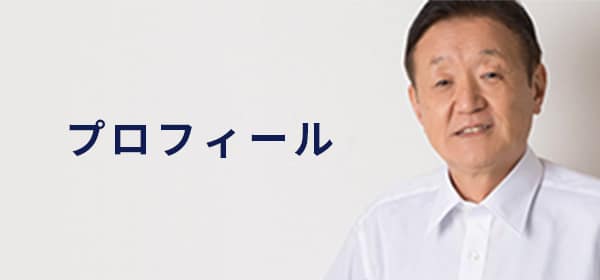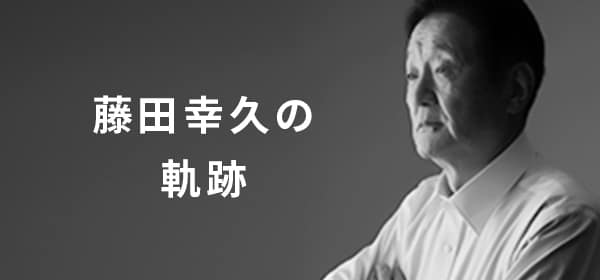ブログ
【The Japan Times online】Lawmaker takes 9/11 doubts global2008年06月17日
2008.6.17 The Japan Times onlineより転載
THE ZEIT GIST
Lawmaker takes 9/11 doubts global
By JOHN SPIRI
Special to The Japan Times
In a September 2003 article for The Guardian newspaper, Michael Meacher, who served as Tony Blair's environment minister from May 1997 to June 2003, shocked the establishment by calling the global war on terrorism "bogus." Even more controversially, he implied that the U.S. government either allowed 9/11 to happen, or played some role in the destruction wrought that day. Besides Meacher, few politicians have publicly questioned America's official 9/11 narrative ? until Diet member Yukihisa Fujita.
In January 2008 Fujita, a member of the Democratic Party of Japan, asked the Japanese Parliament and Prime Minister Yasuo Fukuda to explain gaping holes in the official 9/11 story that various groups ? including those who call themselves the "911 Truth Movement" ? claim to have exposed.
Fujita, along with a growing number of individuals ? including European and American politicians ? are leading a charge to conduct a thorough, independent investigation of what happened on Sept. 11, 2001.
"Three or four years ago I saw some Internet videos like 'Loose Change' and '911 In Plane Site' and I began to ask questions," Fujita said in an interview, "but I still couldn't believe this was done by anyone but al-Qaida.
"Last year I watched more videos and read books written by professor David Ray Griffin (a professor emeritus of philosophy of religion and theology at Claremont Graduate University who wrote the most famous Truth Movement book, 'The New Pearl Harbor') about things such as the collapse of World Trade Center No. 7. This building, which was never hit by an airplane, collapsed straight down. Between the videos showing the way it fell, and the numerous reports of explosions, many are convinced that this building was demolished."
Fujita's presentation to the Diet and Fukuda focused a great deal on yet another aspect of 9/11 that now quite a few around the world find extremely suspicious: the Pentagon crash.
"I don't think (a) 767 could have hit the Pentagon," Fujita reckons. "There is no evidence of the plane itself. Almost nothing identifiable was left on the lawn or inside. The official story says the entire plane disintegrated, but the jet engines in particular were very strong (two 6-ton titanium steel turbine engines). And the damage to the building is much smaller than the size of the supposed airplane. The official claims just don't fit the facts."
While some label that claim "wacky" and label critics of the official 9/11 story "conspiracy theorists," Fujita has impressive company. For one, former Maj. Gen. Albert Stubblebine, who was commanding general of U.S. Army Intelligence and Security until 1984, is quoted on the "Patriots Question 911" Web site as saying, "I look at the hole in the Pentagon and I look at the size of an airplane that was supposed to have hit the Pentagon. And I said, 'The plane does not fit in that hole.'
"So what did hit the Pentagon? What hit it? Where is it? What's going on?"
Fujita urges the Bush administration to put the issue to rest simply by showing videos that show the plane that hit the Pentagon. Instead, only a few grainy images have been released to the public. More disconcertingly, many videos taken by surrounding businesses were confiscated by the FBI immediately after the Pentagon explosion.
The Pennsylvania crash, like the Pentagon explosion, also yielded virtually no recognizable plane parts at the crash site. Rather, small pieces of debris were found up to 10 km away. The official story ? that the plane "vaporized" when it hit the ground ? is inconsistent with the evidence left by every other plane crash in the history of aviation.
Plane crashes always yield plane fragments, Fujita explained, which can be identified by the plane's serial number, but that's not the case for the four planes which crashed on 9/11. Strangely, the U.S. government managed to produce passports and DNA samples of individuals killed, but no identifiable plane parts. In an online article entitled "Physics 911," 34-year U.S. Air Force veteran Col. George Nelson notes, "It seems . . . that all potential evidence was deliberately kept hidden from public view."
Fujita has largely relied on the voluminous amount of video and written material published in books and on the Internet, including the "Patriots Question 911" site, on which hundreds of allegations are leveled against the official story by senior officials from the military, intelligence services, law enforcement, and government, as well as pilots, engineers, architects, firefighters and others.
While not many other Japanese have taken an interest in this story, a few notable individuals besides Fujita have disputed the U.S. government's version, including Akira Dojimaru, a Japanese writer living in Spain. In his book, written in Japanese, "The Anatomy of the WTC Collapses: Flaws in the U.S. Government's Account," he uses photos, drawings and blueprints of the WTC buildings to back up his claim that buildings one and two could not have fallen in the manner they fell due to the plane crashes and subsequent fires. "And even if it was conceivable that they could fall due to the damage that day," Dojimaru wrote in an e-mail, "they never would have collapsed horizontally, and would have scattered steel beams and smashed concrete much farther than 100 meters."
For Fujita, it was Dojimaru's meticulous research, combined with the aforementioned Web sites, that convinced him the official story was nothing more than a house of cards.
One book that Fujita found unconvincing was the "9/11 Commission Report."
"The head of the 9/11 Commission is close with (U.S. Secretary of State) Condoleezza Rice and (Vice President Dick) Cheney. One commission member (Sen. Max Cleland) resigned, saying the White House did not disclose enough information."
On Democracy Now's radio show in March 2004, Cleland even went as far as to say, "This White House wants to cover it (the facts of 9/11) up."
More recently, a New York Times article in January quoted Thomas Kean, the chairman of the 9/11 Commission, as saying that "the CIA destroyed videotaped interrogations of Qaeda operatives," and concluded that that "obstructed our investigation."
Following the lead of Fujita, Karen Johnson, a conservative Republican senator from Arizona, has publicly voiced her doubts about 9/11 before the U.S. Senate. Inspired by Blair Gadsby ? who on May 27 started a hunger strike to bring attention to the 911 Truth Movement ? Johnson, like Fujita, is encouraging politicians to conduct a thorough, independent investigation.
Fujita, who worked for more than 20 years for the international conflict resolution NGO group MRA and the Japanese Association for Aid and Relief (AAR), has become something of a global cause celebre since his extraordinary questioning at the Diet. In February 2008, he participated in a conference at the European Parliament led by EMP Guilietto Chiesa calling for an independent commission of inquiry into 9/11. While in Europe, he met with NGOs from 11 European countries to discuss 9/11.
One month later Fujita spoke at the "Truth Now" conference in Sydney, Australia. One focus of these meetings was the Italian documentary "ZERO," whose release will mark the first time the 9/11 movement's message has moved from the "cyberworld" to public venues. Fujita has also spoken about his 9/11 doubts on two U.S. radio shows, one hosted by Republican presidential candidate Ron Paul, and another by Alex Jones of infowars.com.
He is also making ripples in Japan. Fujita was featured in a March 2 article by well-known critic Takao Iwami on "How to deal with doubts about 9/11" in the Sunday Mainichi weekly. He was also featured in a March 26 Spa! magazine piece headlined, "European conference discusses 9/11 doubts."
However, not everyone is enthralled with Fujita's bold line of questioning.
"One person showed strong anger towards me," Fujita noted, "and another (Japanese person) threatened my life. A few others advised me to be extremely careful."
Still, Fujita says, the vast majority ? around 95 percent ? have been positive.
"One man said, 'You're a true samurai.' Another man came all the way from Okayama in western Japan to thank me personally. And among other Parliament members, I received only words of encouragement and support."
While in Europe, Fujita met British former MP Meacher, who dared to question the official story when it was still considered gospel. Time, the Iraq war and well-sourced online videos are emboldening many people, including politicians, to step out of the cyberworld and voice their doubts in newspapers, magazines, theaters, and ? most importantly ? government chambers.
"Now Blair is gone, and Bush will soon be gone," Meacher told Fujita. "Our time is coming."
[仮訳]
- アーカイブ
-










